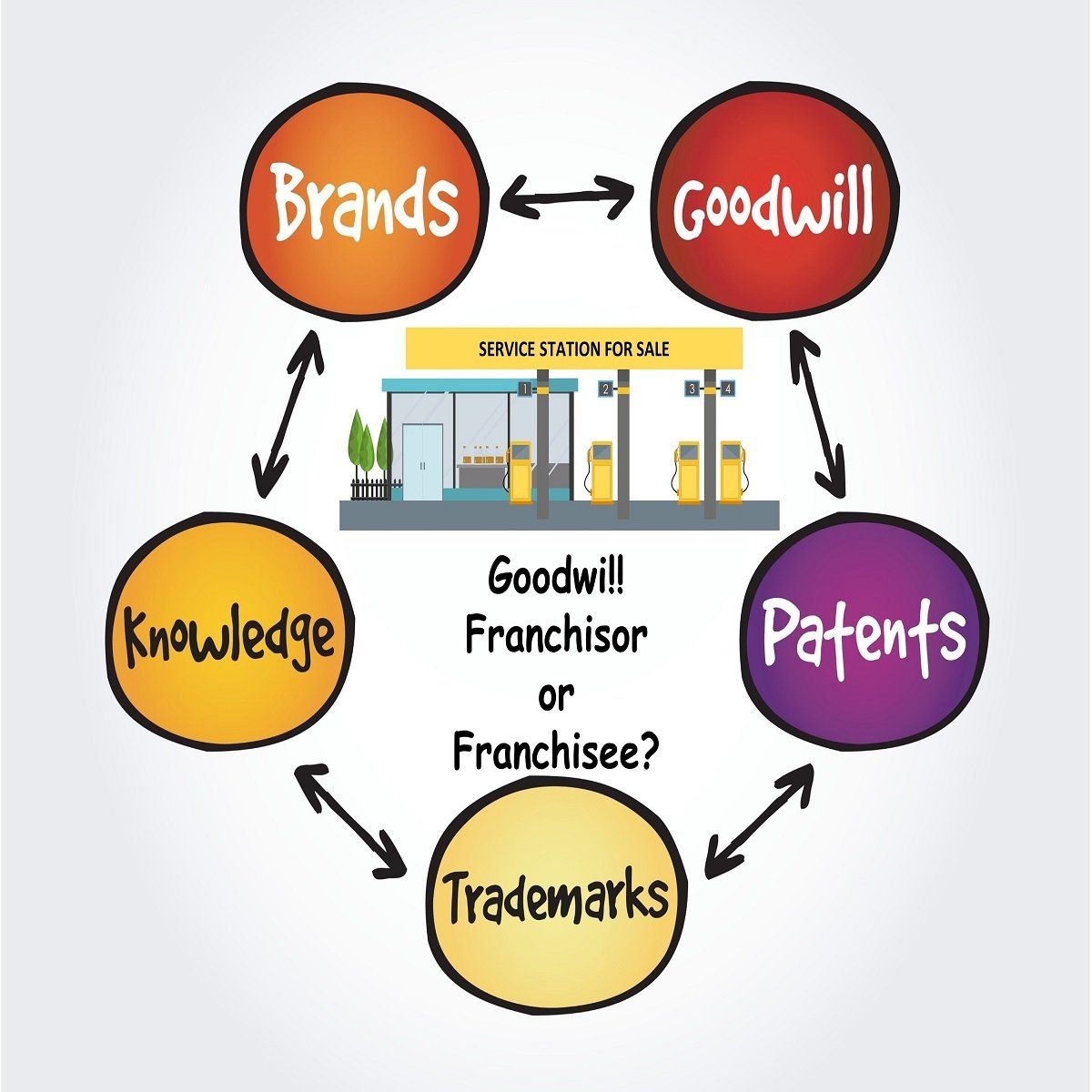The battle for Goodwill ...
- By Nelson Sithole
- •
- 01 Sep, 2020
- •
should both the Franchisor and Franchisee benefit?

South Africa franchising’s economic output contributed 15,3% to the country’s GDP in the year 2017 putting South Africa among the best performing franchising countries in the world. The idea of franchising continues to grow worldwide and largely accepted by most global markets as a viable business model which provides entrepreneurs with a minimal risk and high possible returns. In the Southern Africa petroleum industry governments require major oil companies to conduct their fuel retailing operations through franchising. This one way to ensure participation and employment opportunities of citizens in the part of the fuels value chain.
Franchising as an ongoing relationship between the franchisor and franchisee is vital and delicate. Like any business model, franchise is not immune to sale and purchase of existing franchise-operated businesses. At the centre of sale or exit transactions in the franchise-operated businesses is goodwill, one of the most contentious subject matters.
Goodwill in accounting, and business terms is an intangible asset which is not separately identifiable during the acquisition of a business. It is the difference between the value of all identifiable assets employed in the business and value placed by the owners on the business. It is therefore the sale value that is higher than the sum of the net fair value of all the assets purchased in the acquisition and the liabilities considered. In the franchise-operated business environment, goodwill is quantified and calculated as part of its value during resale or exit.
Starting a business from the ground up can be much more complex and riskier as compared to acquiring a franchise-operated business. This and many other reasons including initial capital outlay, lead entrepreneurs to opt for a franchise-operated business. Another reason that franchised businesses are chosen is the relatively easy access to funding by financiers who consider the risks financiers in these business models moderate and manageable. The benefits are an existing brand presence which often translates to good brand reputation and where the franchisor provides tried and tested system, training for franchisee and staff as well as other necessary support. In the petroleum industry the brand presence is also global and with many years in which the reputation of the brand has been built.
Often entrepreneurs (Franchisees) enter into a contractual agreement with the franchisor excitedly and not considerate of a potential exit strategy. Planning an exit strategy as a franchisee well in advance can be quite important in identify any areas of weakness which the franchisor could use during the sale process. However, often franchisee-operated businesses are characterized by less control for the franchisee as far as the contracts put in place are concerned. This usually results in dissonance between a franchisor and franchisee during resale or exit of the business. At the centre of the squabbles is to who does the goodwill lie to during the resale or exit.
The fact that a franchise-operated business incorporates customer loyalty, brand name and other intellectual properties qualifies a franchisor a share in the goodwill. As expected, franchisees pay royalty fees to franchisors as determined by the franchise agreements between the parties for the continued use of the franchisor’s goodwill by the franchisee. The Franchise Association of South Africa (FASA) defines “Franchise” as one party granting another party the right to operate a business or license under specific conditions. On this condition, the franchisee is expected to work hard and strategically in order to generate profits and secure the viability of the business. The franchisee often achieves all this through initiatives within his sphere of control, such as customer loyalty incentives, local marketing strategies, good reputation within the community and other stakeholders. What a franchisee does may well affect the character of the overall business within the franchise system.
It can be concluded that the activities of both the franchisor and the franchisee contribute meaningfully the Goodwill value of the business. Both roles players deserve a share of the goodwill that accrues on sale or exit. The benefit of joint sharing can be a good incentive to bring positive synergy into the contractual relationship and the business.
For more assistance with Fuel Service Stations Business Plans and Valuations, send us an email at info@outfowpetroleum.com.
Nelson Sithole an Investment and Research Analyst at Outflow Petroleum Insights
References
1. FASA. (2020) Franchising’s massive contribution to global economic output. https://www.fasa.co.za/category/franchise-stats/, [Accessed 31 Aug. 2020].
2. Gowthorpe, C. (2018). Business accounting and finance. Andover, Hampshire, United Kingdom Cengage Learning, Emea.
3. Holden, R, 2020, Practical advice for selling a franchise
https://www.whichfranchise.com/resales/sellingAdvice.cfm#:~:text=There%20is%20a%20provision%20in,wit.... [Accessed 31 Aug. 2020].
4. International Accounting Standards Board (IASB), International Financial Reporting Standard (IFRS) for SMEs, 2015
5. Roussety M et al ,2015, Goodwill in franchising: A precursory examination. [Accessed 31 Aug. 2020].


